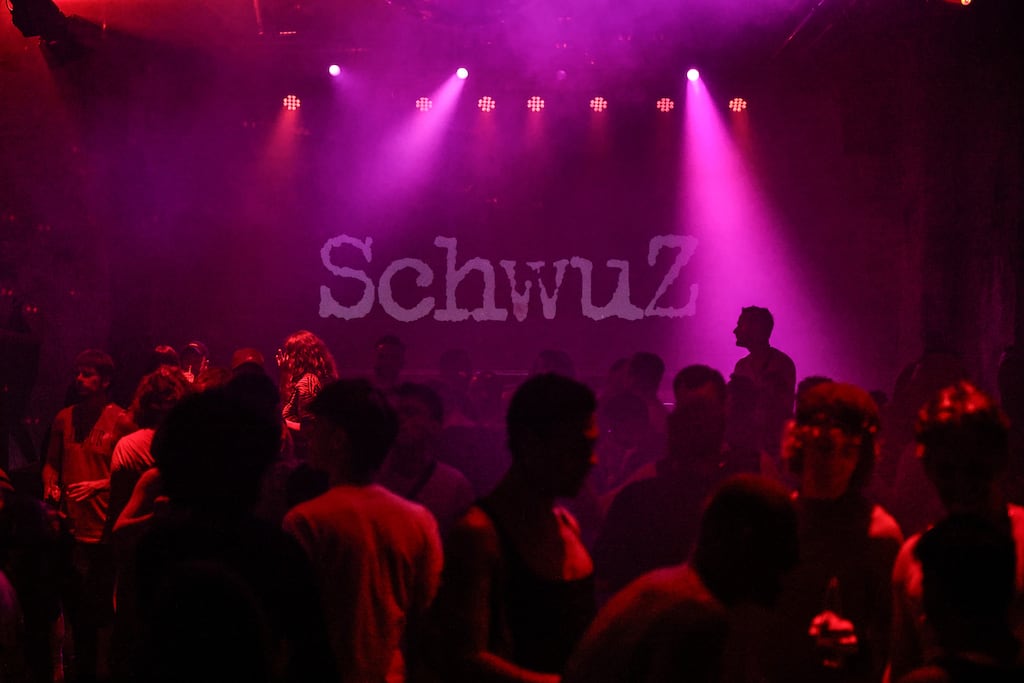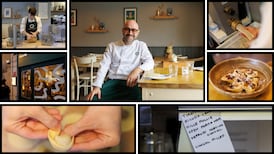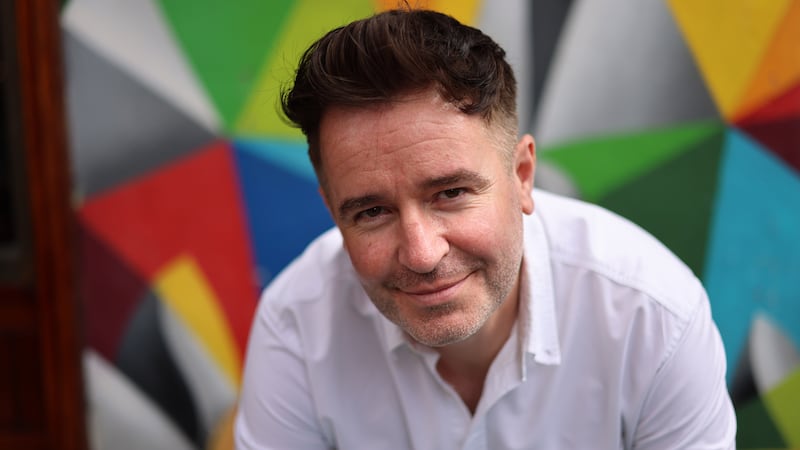While other Berliners dressed up for Halloween last week, Dirk and his friends dressed down – right down – for their last dance at the SchwuZ.
For 48 years, in five separate locations, the SchwulenZentrum (Gay Centre) or SchwuZ – was a popular, non-commercial night spot for generations of gay men in Berlin.
Until Sunday morning, when the SchwuZ closed its doors for the last time, a victim of changing habits, rising costs and poor management decisions.
For Berlin-born Dirk, one year older than the club, he cannot imagine celebrating his 50th birthday next year without a venue that gave him friends and the confidence to strip off and dance all night naked to the uniquely German brand of pop called Schlager.
READ MORE
“You put your clothes in a bag, get an armband and pay for your drinks at the end,” he said. “The Schlager naked party was always more joyful and relaxed than elsewhere, like the SchwuZ in general. All ages – and bodies – were welcome.”
The SchwuZ started life in West Berlin in 1977 as a community – and campaigning – centre for gay men and lesbians. Its formula included (clothed) club nights, mainstream music, political discussion events, self-help groups and other community gatherings.

While other clubs in the unified Berlin went upmarket with their optics and prices, the SchwuZ remained stubbornly basic.
Its exposed brick walls were a budgetary rather than an aesthetic choice, its bar staff pioneered the Gen-Z stare years ago. SchwuZ drag DJs, striking outfits and abrupt song transitions, provided a soundtrack of Gloria Gaynor and Kylie for generations of Berlin gay men to meet, fall in love, mourn and survive.
It was in the SchwuZ that the HIV/Aids epidemic hit hardest, where the absence of a familiar face on the dance floor – or behind the bar – told its own story.
It survived and thrived into a final act in 2013 when the SchwuZ moved from a cosy – but often dangerously full – cellar location to a cavernous former brewery that was difficult to fill and expensive to run.
“We needed 800 to 1,000 people a night but sometimes it was just 600 on a Friday night,” said Katja Jäger, the final SchwuZ director. “We were losing €30,000-60,000 a month.”
In July the SchwuZ entered administration, and a belated wave of solidarity and sold-out parties were not enough to save the venue.
Manuela Kay, publisher of queer city magazine Siegessäule, warned in September: “The current location had more of a Berghain feeling than the SchwuZ and its audience could manage in the long term.”

It was a slow and painful decline, expedited by additional, external shocks. In the post-pandemic years the SchwuZ – like many other Berlin other clubs – struggled with rising costs and fewer revellers. Notably absent: younger generations who swapped clubs and bars for sex apps and private parties.
In recent years the SchwuZ became a lightning rodfor growing culture wars in the queer community over diversity, inclusivity and visibility.
Long-running accusations of door-policy discrimination – against people of colour in particular – were turned on their heads in recent years. Previous regulars, in particular white German gay men, reported being turned away.
The SchwuZ has closed its doors amid a wave of violent attacks on queer establishments in Berlin. Meanwhile a new survey by the Robert Bosch Foundation shows a marked slide in acceptance of diversity in Germany.
Acceptance of diverse sexual orientation in the capital has slipped from 84 points six years ago to 69 points now.
Explaining the slide, Bosch study head Prof Klaus Boehnke points to growing insecurities over of the cost-of-living crisis, fears over war and pressure from the last decade’s migration.
He suggests that growing mutual suspicion between natives and more recent arrivals has created a vicious circle where people in Germany are “no longer as open to the world as they were in 2019 “.
“It’s possible that, in big cities with large waves of migration,” he warned, “we’ve reached diversity saturation point.”
Many in Berlin’s queer community didn’t need the Bosch study to tell them that the German capital, with worrying historical echoes, is no longer the tolerant oasis that once attracted them.
For some tottering out from their last dance at the SchwuZ, the end of the club also ends the dream of unity in diversity. “Everyone talks about the queer community,” said Dirk, “but I don’t think we all even want to party together.”















